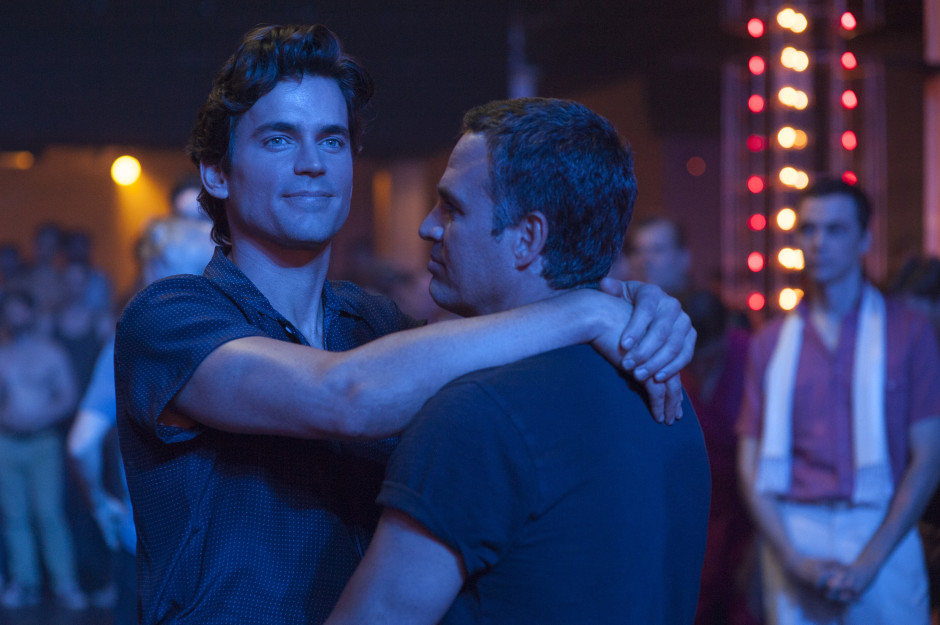The Gist:
The Normal Heart tells the story of the HIV-AIDS epidemic that broke out in New York city amongst gay men in the 1980s, based on the Larry Kramer play of the same name. The story is told in the perspective of Ned Weeks (Mark Ruffalo) who is enraged by the homophobic discrimination of the then government, which refused to acknowledge the importance of the HIV-AIDS crisis that has struck the country. Ned and his friends in the Gay Men’s Health Crisis group work closely with Dr. Emma Brookner (Julia Roberts) in the HIV research and treatment, but due to differences in their approaches, conflicts soon appeared between Ned and his friends.
Beneath the anger and frustration also lies a colourful love story between Ned and his closeted partner, Felix Turner (Matt Bomer), who also caught the virus and died in the end.
The Review:
It is no surprise that gay-themed films like The Normal Heart revolves around the common plot where there are the openly gay people, the closeted gay people and the antagonistic homophobic society. That’s exactly what The Normal Heart is, but better.
Just like how any catastrophic films foreshadow its tragedy, the film opens with a scene of a colourful beach party in summer, celebrating Craig’s (Jonathan Groff) birthday. The opening was sufficient in its attempt to portray the liberty to publicly display affection that gay men had finally gained at that point in time; however, somehow I still feel that this scene lacks a certain zest, which perhaps calls for more creativity on Murphy’s part in direction. I was quite disappointed when the film started but the subsequent contents definitely changed my mind.
When watching the film, one thing that should catch your eye is the gradual explosion of anger throughout the film. The direction of this film truly brings out the essence of every single one of the character. It shows a greater side of humanity, in a way – it sort of brings out the fear in the characters one by one, and it’s enlightening to see, as if every emotional outburst symbolises a different landmark in their battle. The shouting and anger is not an element that’s hard to miss, but it’s also not surprising if it is dismissed without truly understanding its depth.
I think when it comes to a film like this one, the critique on the film tends heavily towards the screenplay (and somewhat, the direction) as most audience would compare it to the original theatrical play. But this film doesn’t sell it short at all, in fact, I feel that the multi-angle view of the different facets of the character is in fact clearer in studio lights than stage lights. The editing of the film definitely adds some flavour to the scenes, complementing the emotions that the scenes evoke. But I must still say that the editing work isn’t perfect. Some parts seem a little too rushed and it somewhat disrupts the coherence of the film. But then again, the beauty of films like these lie heavily in the essence of the plot.
When I first heard of this film, I was rather sceptical because the gay protagonist is played by a straight man, and then I thought to myself, ‘maybe the film is meant to tell the HIV story more than the love story between two men.’ But I was so wrong! Mark Ruffalo’s character is so well-played that you may even think that he is secretly gay. But Ruffalo’s performance is not the most impressive because Matt Bomer’s character really blew me away – of course not just the charming blue eyes, but just brilliant from the scene when Felix (Matt Bomer) and Ned had sex the first time, there was a little tear that slipped right out of the corner of Felix’s eye. The existence of Felix’s character brings a great balance to the movie. It sort of mellows out the anger and aggression and negativity.
On a more literary note, it’s worth noting that there are just so many literary techniques and devices embedded into the film, probably because it was originally a play. There is an elaborated hint of irony all through the film; and there are multiple symbolisms and metaphors – like Felix’s smile, sugar and the refusal to conform to aggression – just to name a few. The understanding of these devices makes one fall in love with this movie even more.
The Verdict:
What’s surprising is that such a brilliant film couldn’t have landed itself on bigger screens, but rather, just aired on TV. It’s the kind of film that you’d want to watch because of its meaning, not for any specific cinematography elements. And if you’re a literary fanatic, then this is really as brilliant as it gets for a film based on a play.
Director: Ryan Murphy
Starring: Mark Ruffalo, Matt Bomer, Taylor Kitsch, Julia Roberts, Jim Parsons
Running Time: 132 minutes
Release Date: 25 May 2014


















No Comments